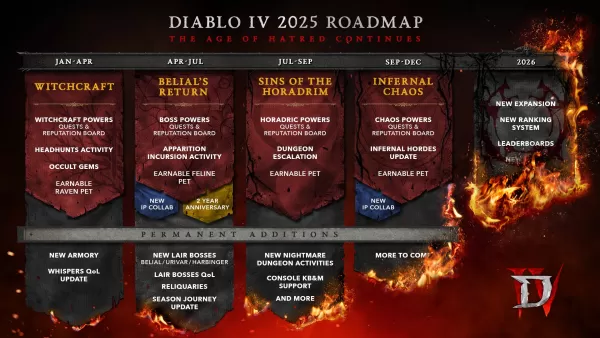The last 48 hours have been a whirlwind for both economics enthusiasts and Nintendo fans. On Wednesday, the gaming community learned that the Nintendo Switch 2 would be priced at a steep $450 in the U.S., a figure influenced by anticipated tariffs, inflation, competition, and component costs, according to analysts.
The situation escalated when the Trump Administration announced sweeping 10% tariffs on goods from virtually every country, with significantly higher tariffs targeting nations like China, the EU, Japan, Vietnam, Canada, and Mexico. In a swift response, China announced a 34% reciprocal tariff on all U.S. goods this morning. Amidst this backdrop, Nintendo made a last-minute decision to postpone Nintendo Switch 2 pre-orders in the U.S., citing the need to assess the impact of these new tariffs on their console strategy.
This unprecedented series of events has left both the gaming industry and the general public grappling with uncertainty. Just minutes before Nintendo's announcement, I spoke with Aubrey Quinn, a spokesperson for the Entertainment Software Association (ESA), to discuss the broader implications of these tariffs on the gaming sector.
The ESA is currently navigating these murky waters, trying to understand how these developments will unfold. Quinn mentioned that while tariffs were anticipated due to President Trump's previous actions and campaign rhetoric, the exact nature and extent of these tariffs were still unclear. She expects potential retaliations from countries like China and the possibility of further U.S. tariffs. However, the long-term effects remain uncertain.
Despite the uncertainties, the ESA is clear about one thing: these tariffs will have a negative impact on the video game industry. "We really are, at this point, just watching and trying not to have knee-jerk reactions, because we don't think that what President Trump announced this week is the end of the story," Quinn explained. "But what was announced this week and the tariffs as outlined, we do expect these tariffs will have a real and detrimental impact on the industry and the hundreds of millions of Americans who love to play games. Our goal is to work with the administration and other elected officials to find a solution that doesn't damage U.S. industries, businesses, but also American gamers and families."
Quinn emphasized that the detrimental impact extends beyond just the price of gaming systems. "It's hard to imagine a world where tariffs like these don't impact pricing," she noted. Additionally, consumer spending will likely decrease, affecting company revenues, jobs, investment in research and development, and even the design of future consoles. "The entire consumer ecosystem is connected," she stated.
In response to these challenges, the ESA is taking action, albeit with difficulty given the recent changes in the Trump Administration. Quinn highlighted the need for dialogue with the new administration, stating, "We know who the conversations need to be happening with, and we are working on making connections and making sure that they understand that we are eager to work with them to find solutions. This is about public, private sector conversations happening, so we can understand and make sure that they see the impact and the risk of impact to business, to consumers, and really everything that's happening within the US borders."
The ESA has already joined a coalition of trade associations to voice their concerns to U.S. trade representative Jamieson Greer before the tariffs were announced. They are also seeking meetings with various legislators and administration members to discuss these issues further.
When asked about the effectiveness of their efforts, Quinn confirmed that conversations are taking place at various levels of government, though not yet with President Trump himself. "We've met with members of the administration, employees at the White House, and employees at USTR," she said. The ESA is collaborating with other associations to highlight the broader impact of these tariffs on all consumer products, not just video games.
For concerned consumers, Quinn recommended reaching out to their representatives through letters, calls, emails, or social media to express their concerns. "I think the more members of government, elected officials, and their staff who hear that their constituents are concerned, the more likely we are to be heard and to potentially make an impact," she advised.
Nintendo's decision to pause pre-orders for the Nintendo Switch 2 came just minutes after our conversation. While the ESA does not comment on individual company actions, Quinn noted the unfortunate timing of the Switch 2 reveal with President Trump's tariff announcement. "There are so many devices we play video games on," she pointed out, "from other consoles to VR headsets, smartphones, and PCs. If we think it's just the Switch, then we aren't taking it seriously. This is going to have an impact."
Quinn also stressed that even American-based companies rely on global supply chains, and thus, the impact of these tariffs will be felt across the entire industry. "This is company-agnostic, this is an entire industry. There's going to be an impact on the entire industry," she concluded.








